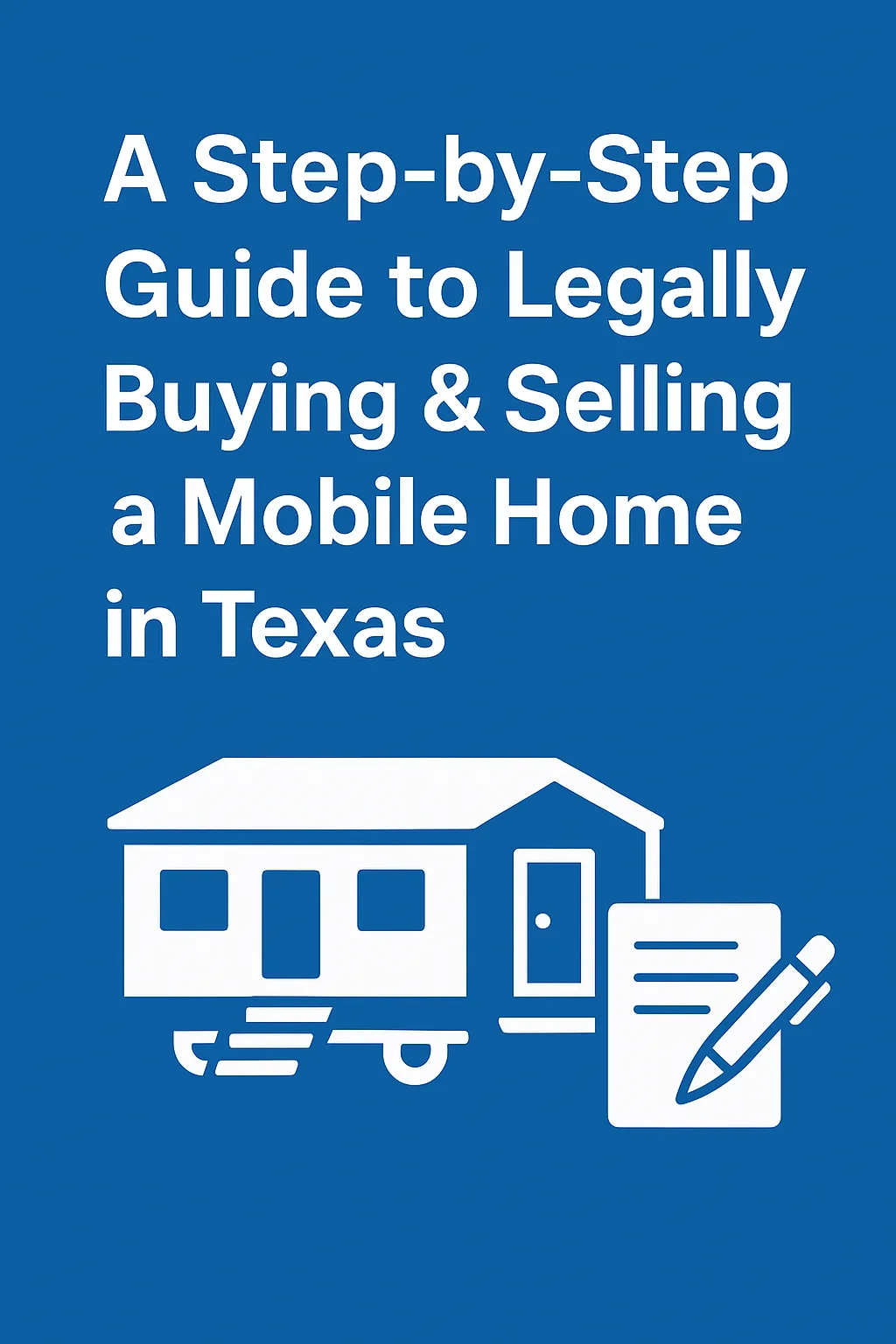
Texas Mobile Home Guide: Legal Steps to Buy & Sell | The Aida Group
A Step-by-Step Guide to Legally Buying & Selling a Mobile Home in Texas
Welcome back to The Property Attic blog! As part of The Aida Group, we've helped countless clients navigate the complexities of real estate. Following our last post on owner financing, we’re now diving deeper into the full legal process of buying or selling a mobile home in the Lone Star State. This guide is your essential checklist to ensure a smooth, compliant, and stress-free transaction.
Step 1: Understanding Ownership: Is Your Mobile Home Real or Personal Property?
One of the first and most critical things to understand is how a mobile home is legally classified. Unlike traditional houses, a mobile home can be treated as either personal property or real property.
Personal Property: A mobile home is considered personal property if it is not permanently attached to the land. In this case, its ownership is governed by the Texas Department of Housing and Community Affairs (TDHCA).
Real Property: Once a mobile home is permanently affixed to a foundation on land you own, it can be converted to real property. This is a crucial distinction that affects taxes, financing, and legal rights.
Since 2003, mobile homes in Texas no longer have a traditional title like a car. Instead, ownership is established through a Statement of Ownership and Location (SOL), which is registered with the TDHCA.
Step 2: The Due Diligence Checklist for Buyers
Before you even think about handing over a down payment, a thorough inspection of the paperwork is non-negotiable. As The Aida Group, we always advise our clients to follow this checklist to avoid future legal headaches:
Verify Ownership & Check for Liens: Go to the TDHCA website and use the home's Vehicle Identification Number (VIN) to verify that the seller is the legal owner and to check for any outstanding liens or debts. Failing to do this can make you responsible for the previous owner's liabilities.
Locate the Data Plate: Every mobile home has a data plate, a small metal plate with critical identifying information, including the manufacturer's serial number, model, and date of manufacture. It's typically found inside a kitchen cabinet, a bedroom closet, or near the electrical panel. A missing or altered data plate is a major red flag that could indicate a fraudulent sale.
Get a Tax Clearance Statement: Visit your county tax assessor’s office to obtain a tax clearance certificate. This document proves that all personal property taxes on the mobile home have been paid, preventing you from inheriting the previous owner's tax debt.
Step 3: Key Legal Documents to Complete the Transaction
Proper documentation is the bedrock of a legal mobile home sale. Here are the essential documents you'll need:
Bill of Sale: While not legally required by the state, a detailed bill of sale signed by both parties serves as concrete proof of the transaction, outlining the sale price and terms.
Statement of Ownership and Location (SOL): This is the most important document in the transaction. Both the buyer and seller must fill out and file a new SOL with the TDHCA to officially transfer ownership.
Moving Permit: If you plan to move the mobile home to a new location, you will need a permit from the Texas Department of Motor Vehicles (DMV) to legally transport it.
Step 4: Navigating Zoning, Land Use, & Installation
If your purchase involves moving the mobile home, you must be aware of zoning and installation regulations.
Zoning Laws: Many Texas municipalities have strict zoning laws that dictate where mobile homes can be placed. Before you purchase land or finalize a sale, confirm with the local city or county that the property is zoned for manufactured housing.
Permits & Licensing: Installing a mobile home on a new site requires specific permits, including building, electrical, and plumbing permits. It is crucial to use a licensed professional to ensure the installation complies with both state and federal standards, including the mandatory Wind Zone II specifications for Texas.
Navigating these regulations can be complex, but with the right guidance, it doesn’t have to be a pitfall. At The Aida Group, we are here to help you every step of the way, whether you’re buying, selling, or just have a question about your mobile home. For more information, please visit our website at thepropertyattic.com.